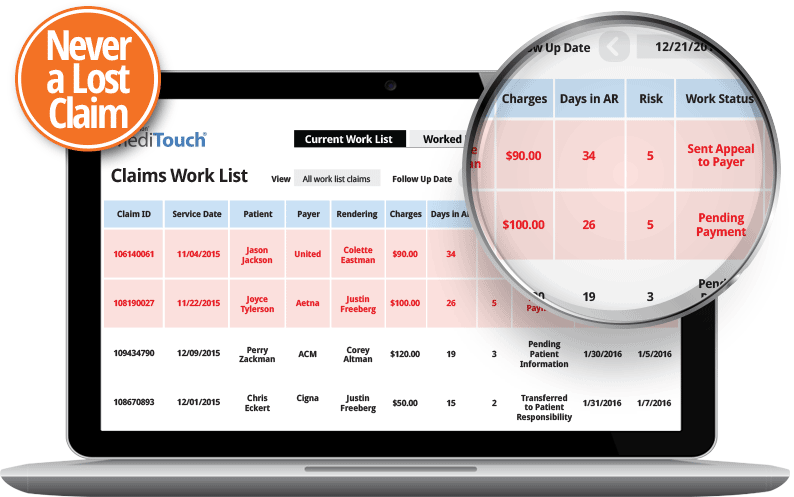Do you know the difference between a denied claim and a rejected claim?
Many people mistakenly think that they are the same thing and or use the terms interchangeably.
A claim denial is vastly different than a claim rejection and the process of fixing or resolving each are different. Understanding the difference is vital to the business side of your practice and a healthy cash flow.

The Difference:
If you submit a claim to a payer that does not meet their specific requirements or their basic format, that claim will be rejected. Meaning that due to some error with that claim it was not technically received into the payer’s adjudication system.
A rejected claim can easily be edited and then gets re-submitted once the error is fixed.
A denied claim on the other hand is one that was received by the payer and entered into their adjudication system. The payer then reviewed the claim and made a payment determination not to pay that claim.
Since payment determination has already been decided that claim cannot simply be edited and then resubmitted, you have to file an appeal to the payer.
Improving your Revenue Cycle Management
The term revenue cycle has been used a lot lately and is somewhat ambiguous. However understanding and managing the difference between claim denials and claim rejections is important to the health of your revenue cycle - or more to the point - it’s important to making sure you’re getting paid for the hard work and patient care you’re providing.
Top Reasons Claims are Denied
Here are the top five reasons for medical billing denials, according to the 2013 American Medical Association National Health Insurer Report Card.
- Incomplete or Missing information
Leaving a required field blank on a claim can trigger a denial. Demographic and other errors such as a missing modifier, the wrong plan code or no SSN, account for over 60% of initial denials.
- Duplicate claim or service
If you re-submit a claim for an encounter on the same date by the same provider for the same beneficiary for the same service item, is one of the biggest reasons for Medicare Part B claim denials (up to 32%).9
- Service already adjudicated
Occurs when benefits for a service are included in the payment/allowance for another service that has already been adjudicated.
- Not covered by payer
Occurs when the patient’s insurance has lapsed or the procedure isn’t covered under their current benefits.
- Limit for filing expired
Payers require claims to be submitted within a specified number of days of service.
Therefore the best strategy is to minimize denials up front:
How to help prevent medical billing claim denials
The following should be part of any sound denials management plan:
- Quantify, categorize and track denials by doctor, procedure and payer.
- Use your billing software to verify insurance eligibility to Improve patient data quality at registration.
- Develop a denials prevention mindset in all areas including accounting, medical records, coding, contracting, compliance and patient access.
- Use your Medisoft, Lytec, or Practice Partner software to help ensure edits are functioning, current and improving your clean claims rate.
- Work with payers to eliminate contract requirements that often lead to denials overturned on appeal.
According to one report 1 only 35% of providers appeal denied claims, leaving a substantial amount of work unreimbursed.
Creating and generating appeal letters to dispute rejected claims is no easy task but instead a complicated process that requires time and dedication.
Many small practices are already understaffed or running at 100% capacity and just don’t have the time or resources needed to effectively work a robust claim denial campaign.
However with an industry average denial rate between 5% and 10% (according to the American Academy of Family Physicians), the cost to a mid sized practice can be substantial.
Many practices lack the technology and staff resources to manage denials effectively, especially in light of constantly changing regulations and payer rules. Outsourcing revenue cycle management to experts like AVS Medical and eMDs who have dedicated denials management teams can be a profitable, sustainable alternative.
-
Quantify Denial Rates for Smooth Revenue Cycle Management; RevCycle Intelligence, DiChiara, Jacqueline 3/30/2015




